If you’re looking for a dessert for a special occasion, Flan is one of the easiest and most delicious Spanish desserts you’ll ever make!
With a silky smooth texture that almost melts in your mouth, this light and creamy dessert sitting in the perfect caramel sauce will soon become a family favorite.
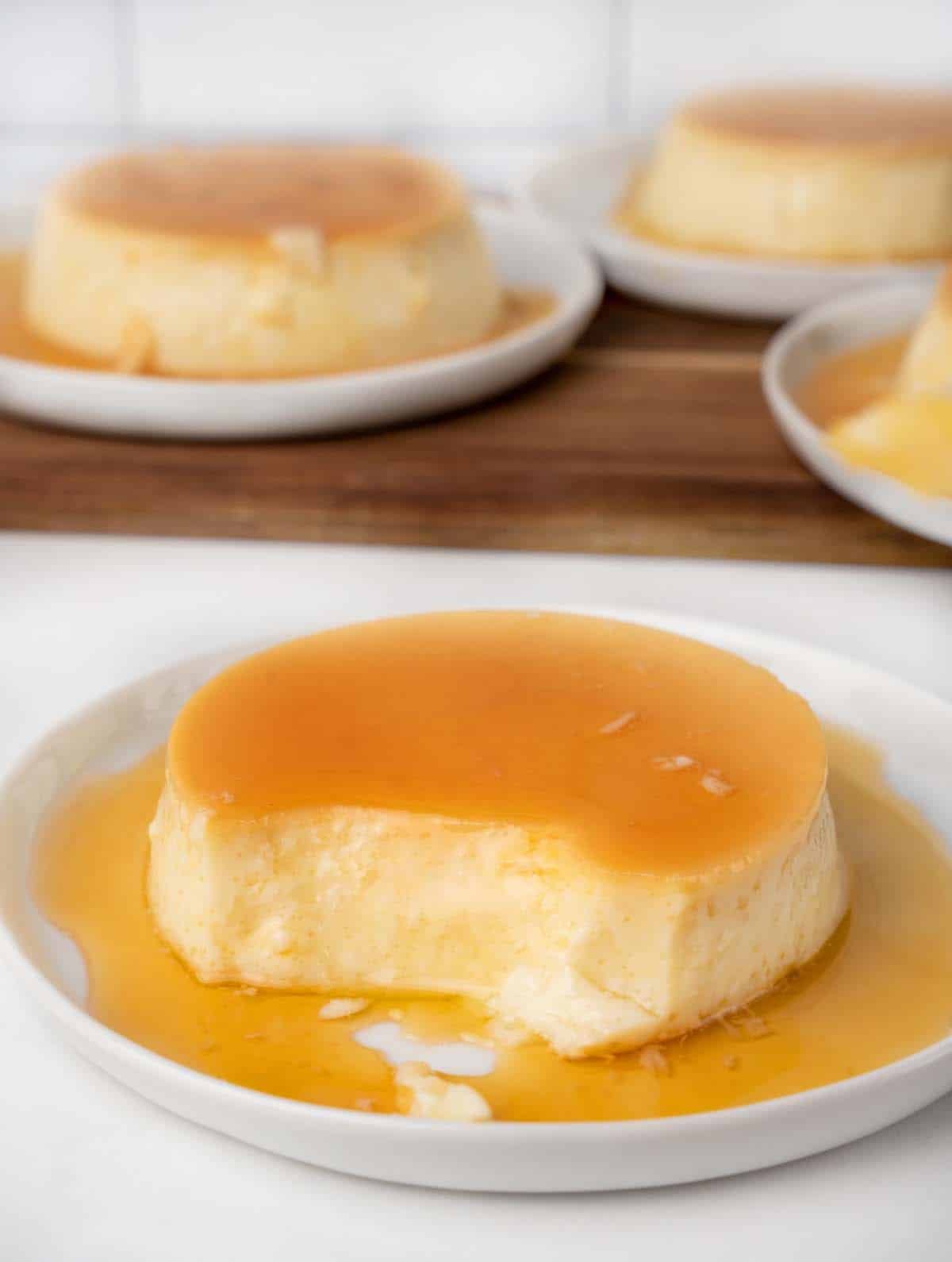
Traveling in Spain, I got to try many of Spain’s classic desserts, and the best version of Spanish flan was found at a roadside cafe outside of Madrid. After sharing a few beers with the owner, he shared his flan recipe with me.
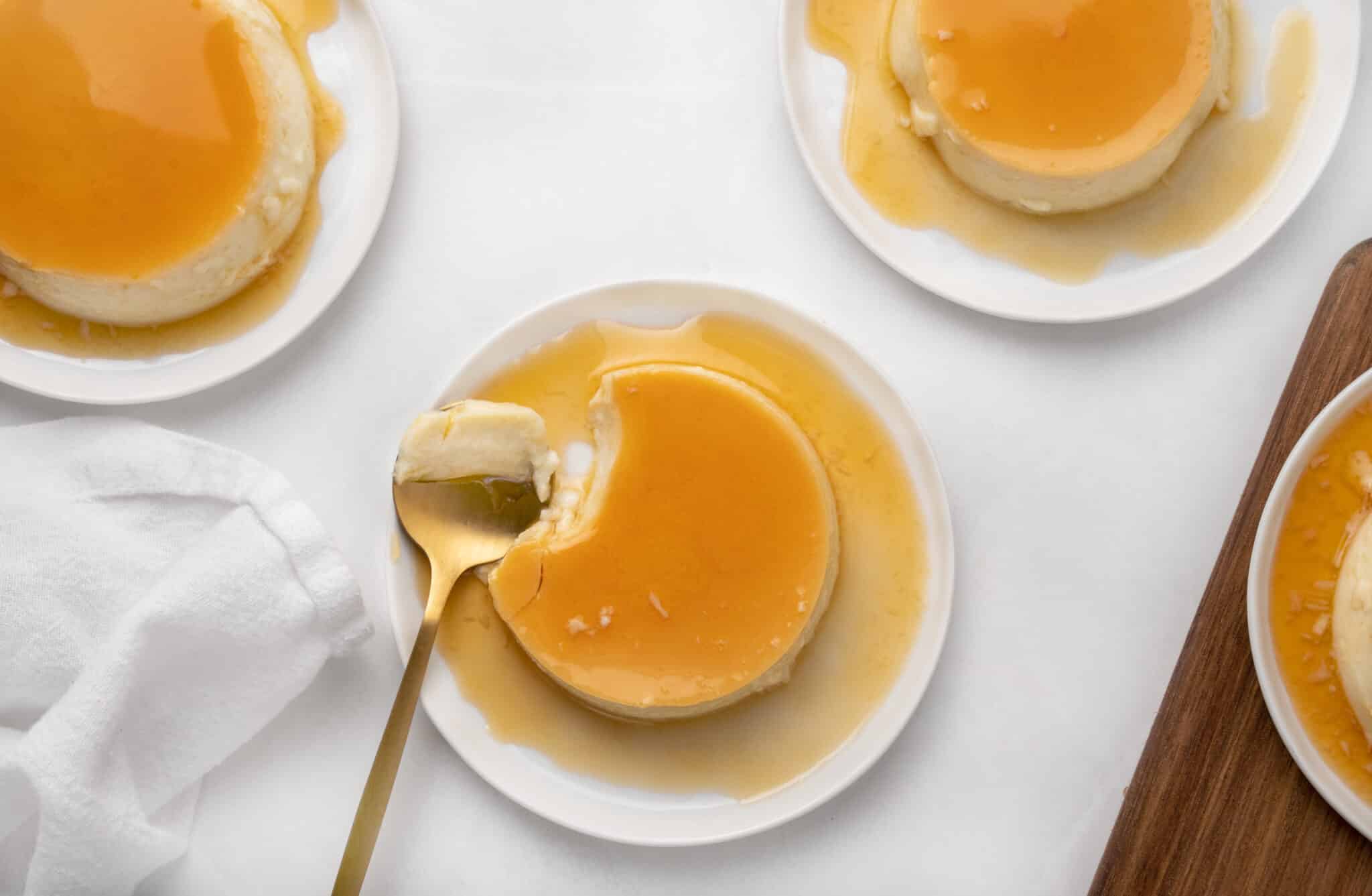
Don’t be fooled by other flan recipes; you only need 4 ingredients to make this Classic Spanish dessert. And after one bite, I’m sure you’ll agree that this is the best Spanish Flan Recipe!
If you love rich custard desserts, my Creme Brulee is a must-try!
Ingredients to make Spanish Flan
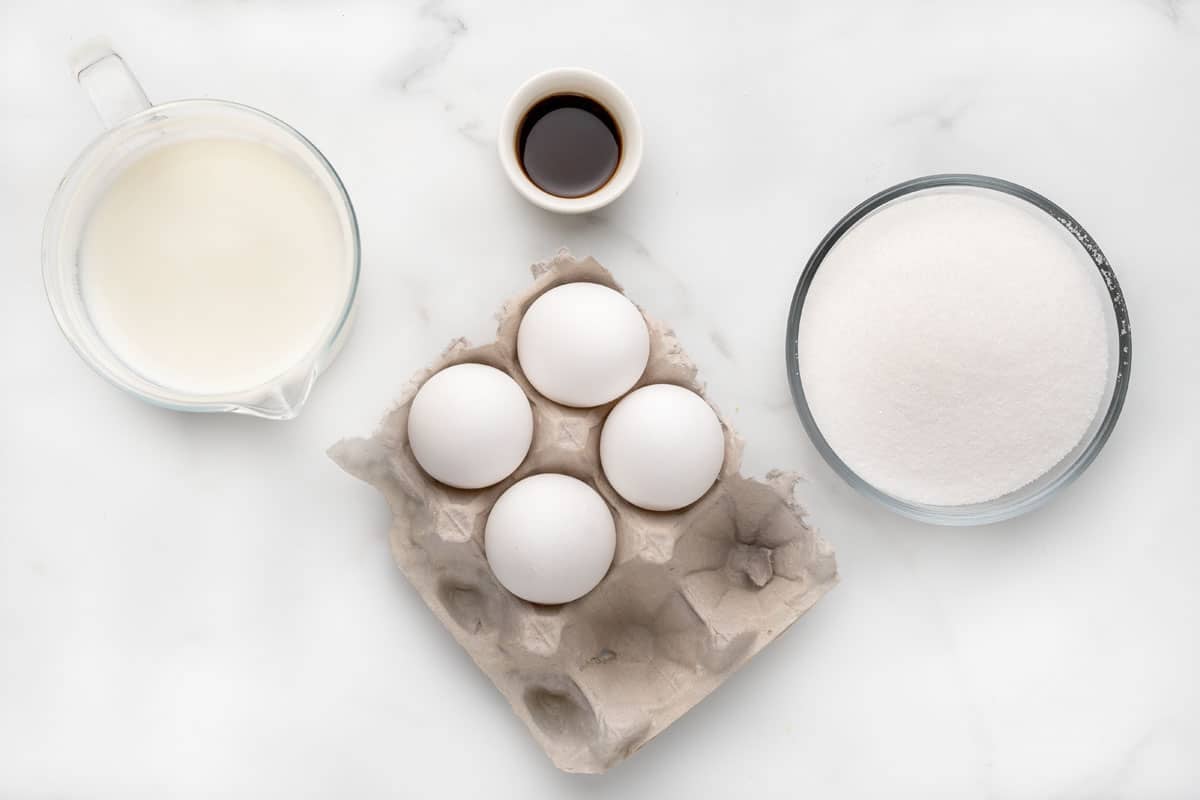
Let’s start by gathering the ingredients we need to make Spanish Flan. In Chef Speak, this is called the “Mise en Place,” which translates to “Everything in its Place.”
Not only does setting up your ingredients ahead of time speed up the cooking process, but it also helps ensure you have everything you need to make the dish.
4 Simple Ingredients
- full-fat milk
- whole eggs
- granulated sugar
- pure vanilla extract
How to make Spanish Flan
The perfect flan has the texture of a custard that is just firm enough to stay in place. It should jiggle and wiggle (almost like jello) on your spoon. But the key to a great flan is the mouth feel. It should be silky smooth when you bite into it.
The sticky sauce that is served with Flan is a simple caramel made from the melted sugar placed in the ramekin before the custard mixture.
Make the caramel sauce
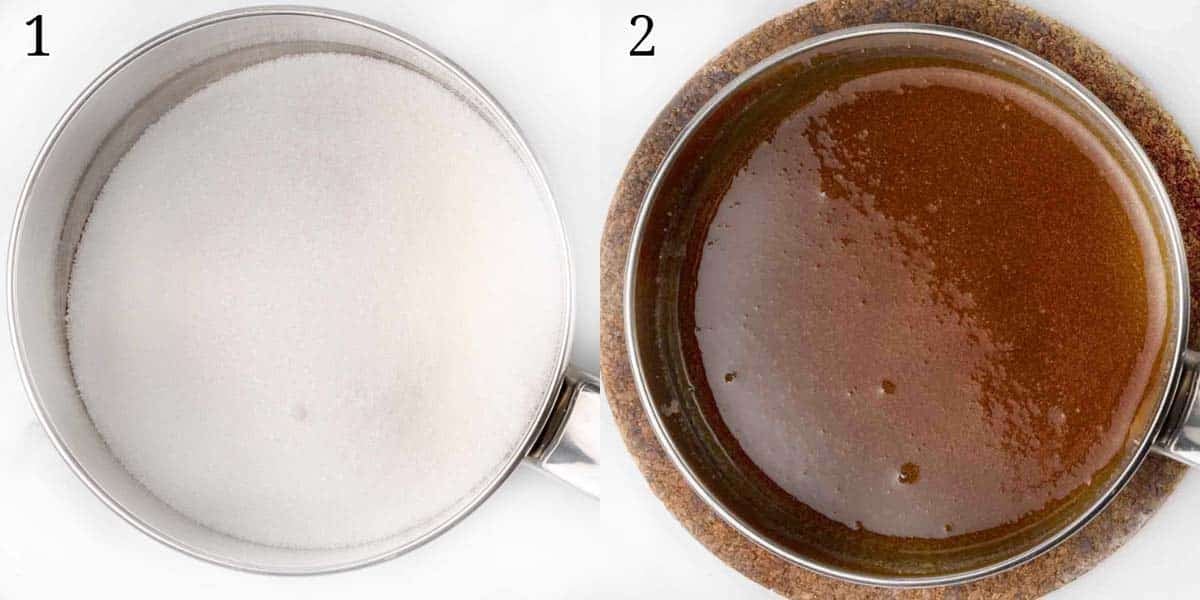
- Add 1 cup of sugar to a small saucepan or skillet.
- Let the sugar cook over medium-low heat for about 10 minutes until it liquefies and turns a light golden-brown color to caramelize sugar. *Keep an eye on the sugar, so it doesn’t burn.
Prepare the baking pan
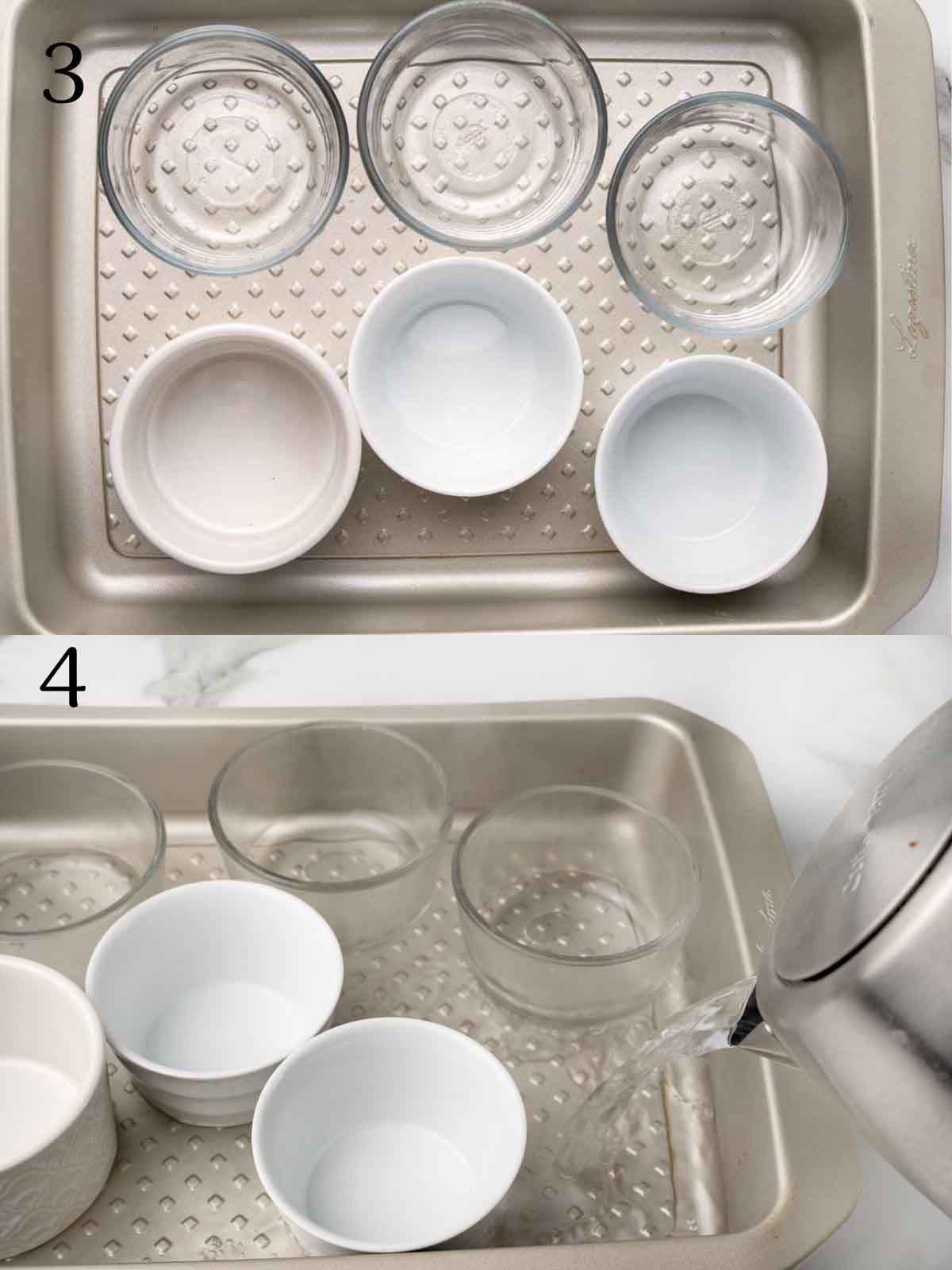
- Place (six) 6-ounce individual ramekins in a baking dish.
- Fill the baking dish with boiling hot water. *This will keep the sugar syrup from hardening
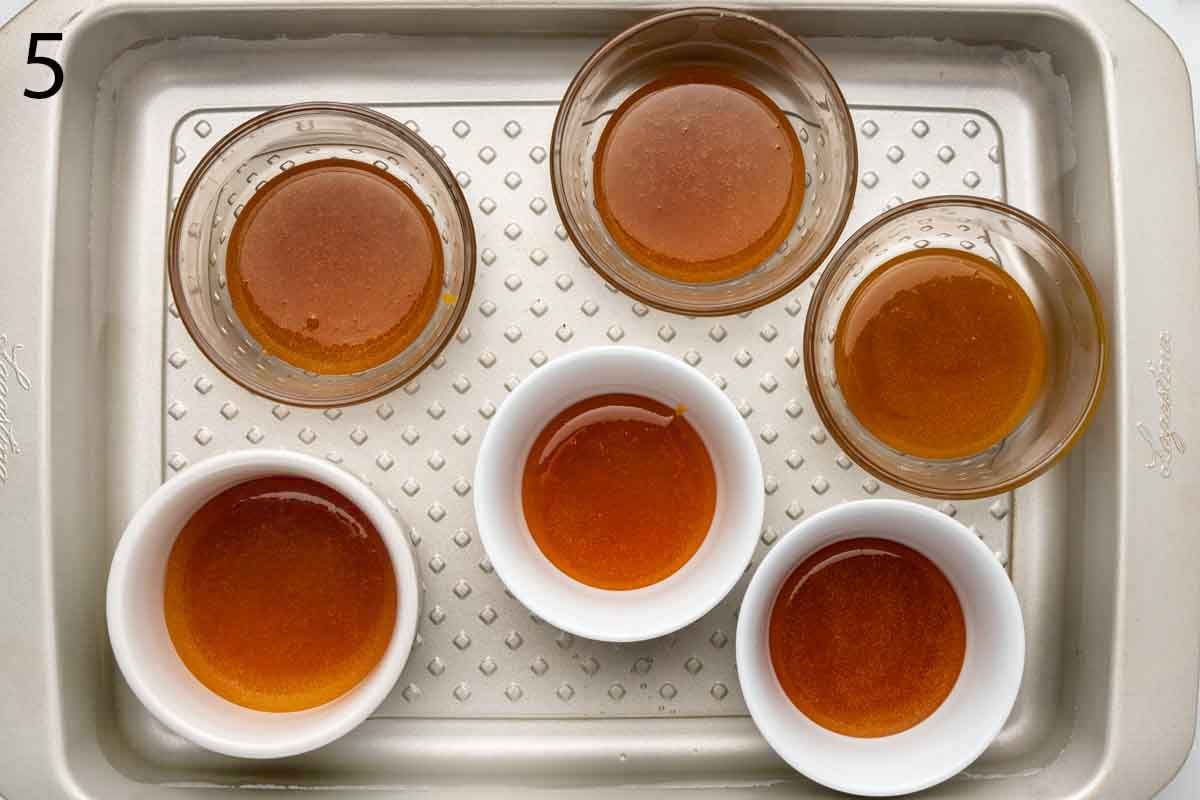
As soon as the caramel is ready, take it off the heat and quickly pour it into the prepared ramekins. If the caramel should start to harden before you’re finished, place the pan back on the heat and stir until it’s smooth.
How to make custard for Spanish Flan
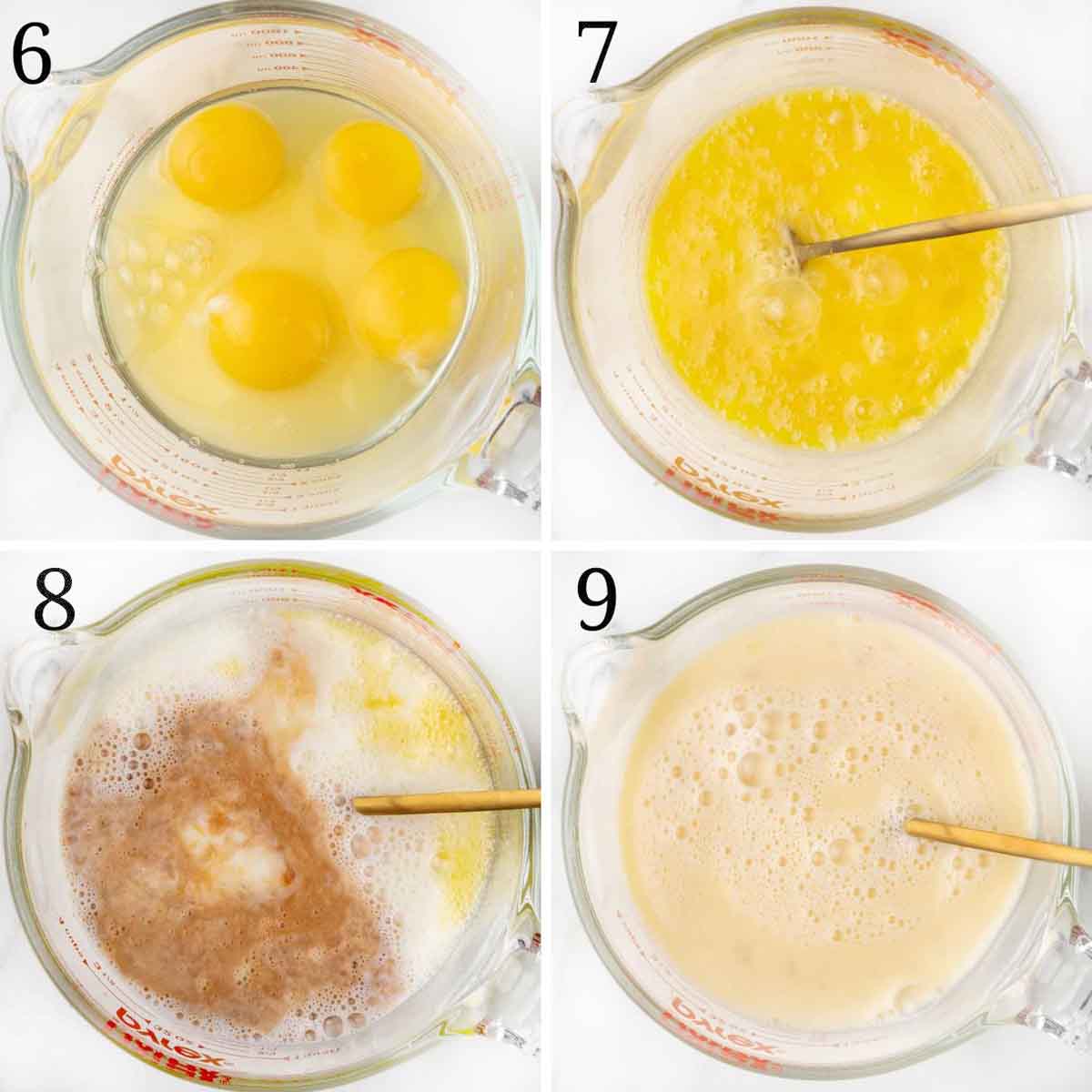
- Add the eggs and ½ cup of sugar to a large mixing bowl.
- Beat eggs and sugar together until well blended.
- Add the milk and vanilla to the egg mixture
- Stir the flan mixture until well combined.
*Make sure the eggs are at room temperature before mixing
How to bake Flan
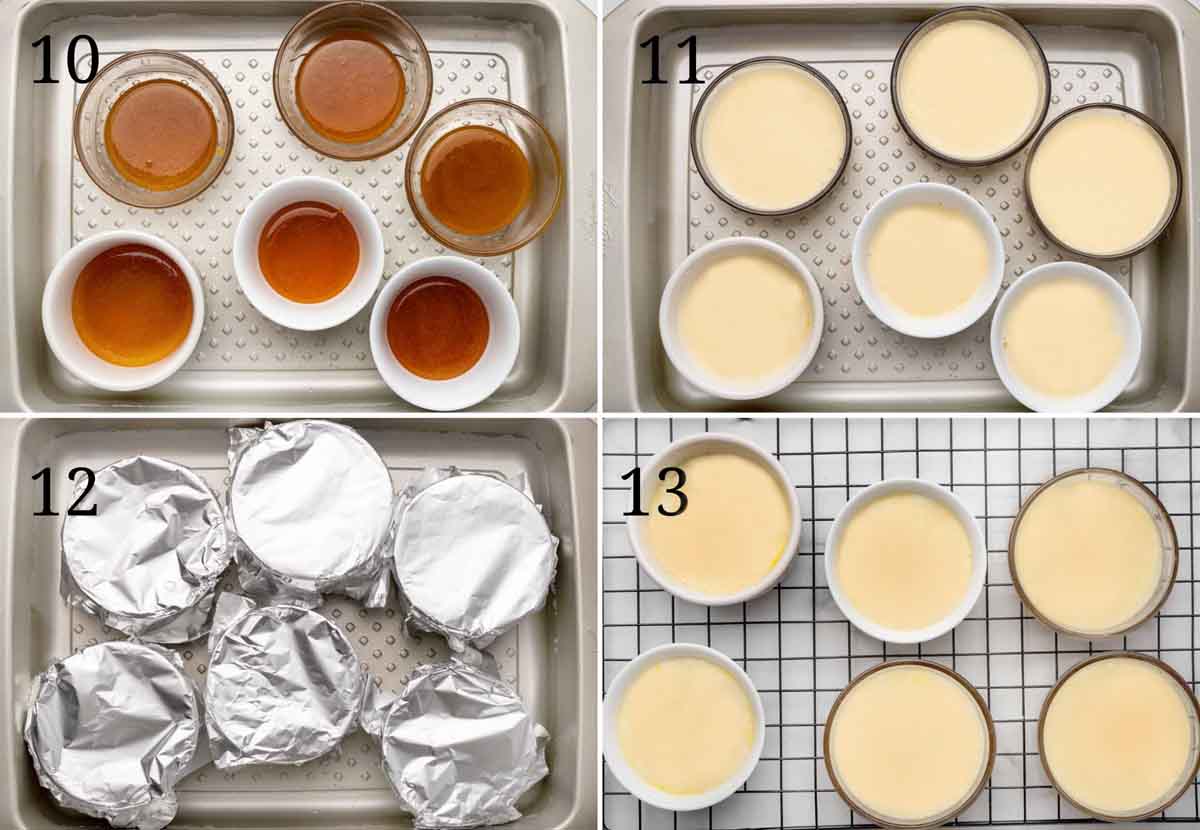
- Use prepared individual ramekins with caramel sauce
- Divide the flan mixture evenly among the six ramekins, pouring right on top of the caramel.
- Cover each ramekin with aluminum foil and tightly seal. Bake in the oven for about 40 minutes or until it wobbles and jiggles when you lightly shake the ramekin.
- Carefully take the ramekins out of the water bath and let them cool to room temperature on a wire rack.
When the flan has cooled to room temperature, cover the dishes with foil and place the ramekins in the refrigerator to chill for at least 6 hours (overnight is best).
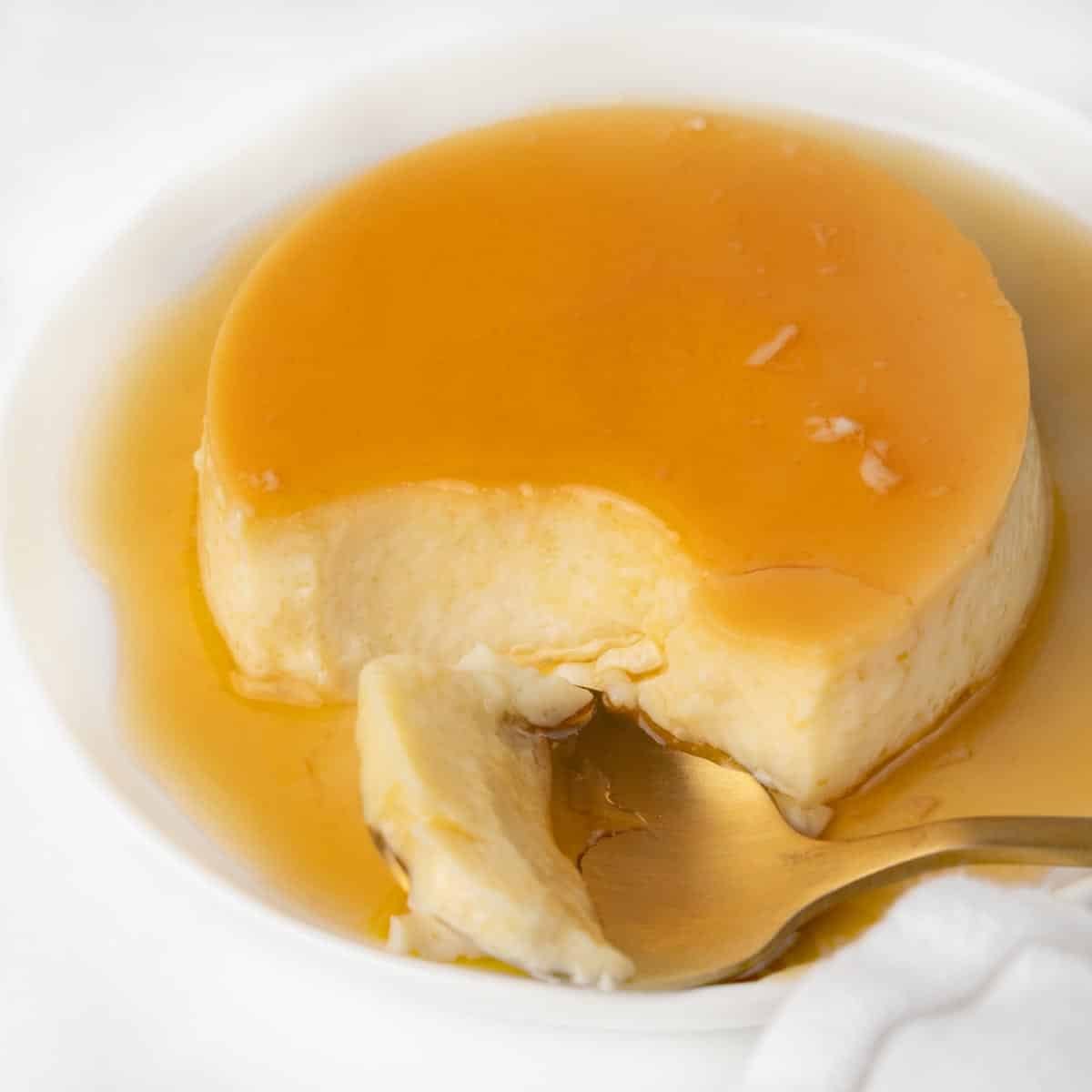
To remove the flan from the ramekin, take a small sharp knife and run it around the inside of the ramekin. Place a small plate on top of the ramekin and flip the plate over and remove the ramekin.
The caramel will spread out and coat the flan and the area around the flan on the plate, creating a restaurant-quality dessert.
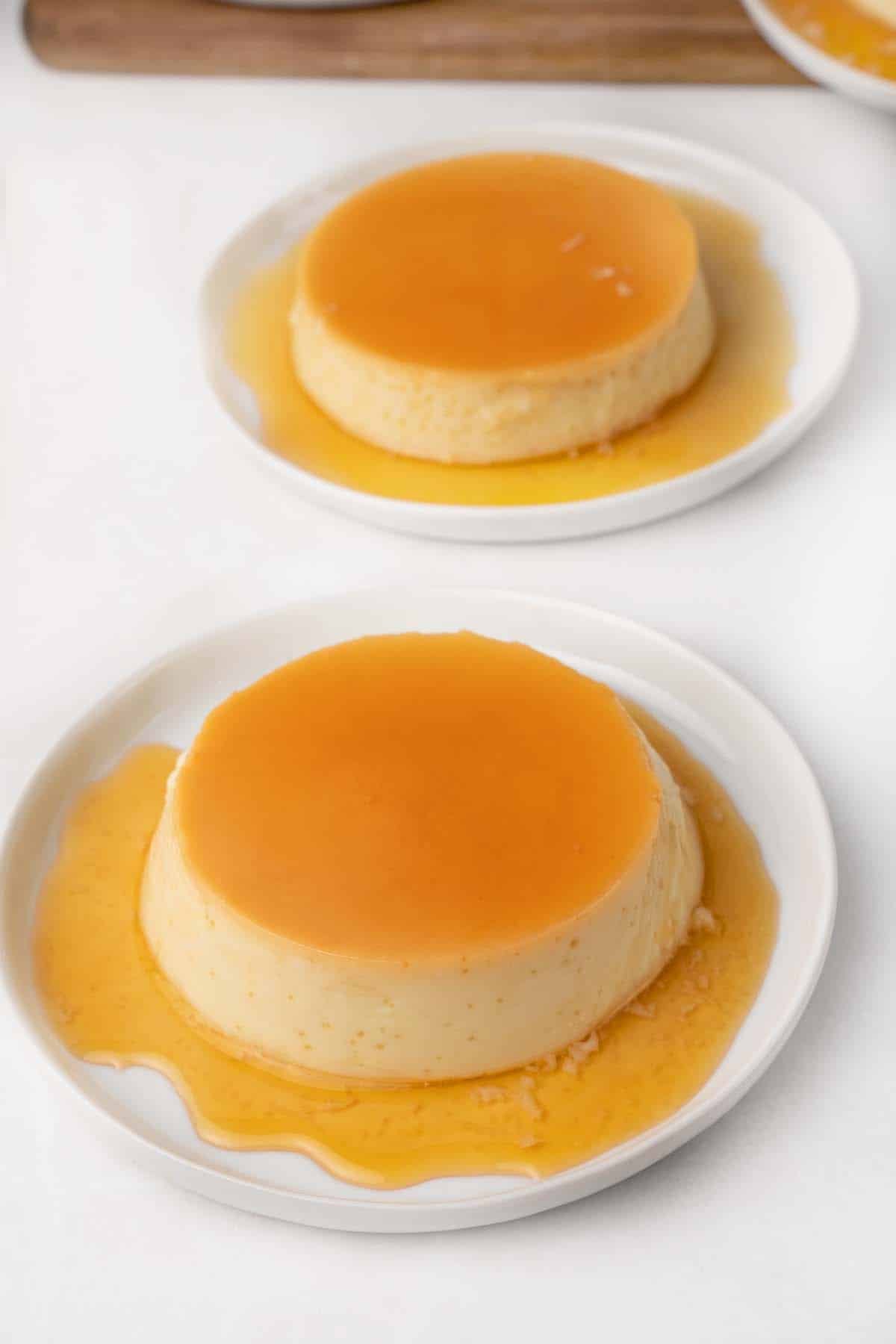
You’re friends and family are going to love having homemade flan for dessert, and you’re going to love my easy Flan Recipe. The creamy egg custard and the sweet caramel sauce is a perfect combination and make a delicious dessert for dinner parties or to make any night a special occasion!
Recipe FAQ’s
Spanish Flan is a sweet custard dessert that is made with eggs, milk (cream or sweetened condensed milk), granulated sugar, and vanilla extract. The caramel sauce is made by caramelizing granulated sugar.
There really is no difference. As with any regional dishes, recipes can vary. Some will use more egg yolks than whole eggs, some recipes will include cream, and others will leave out the vanilla.

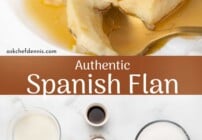
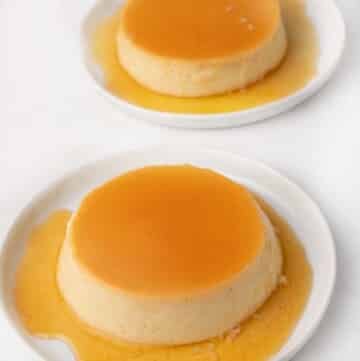

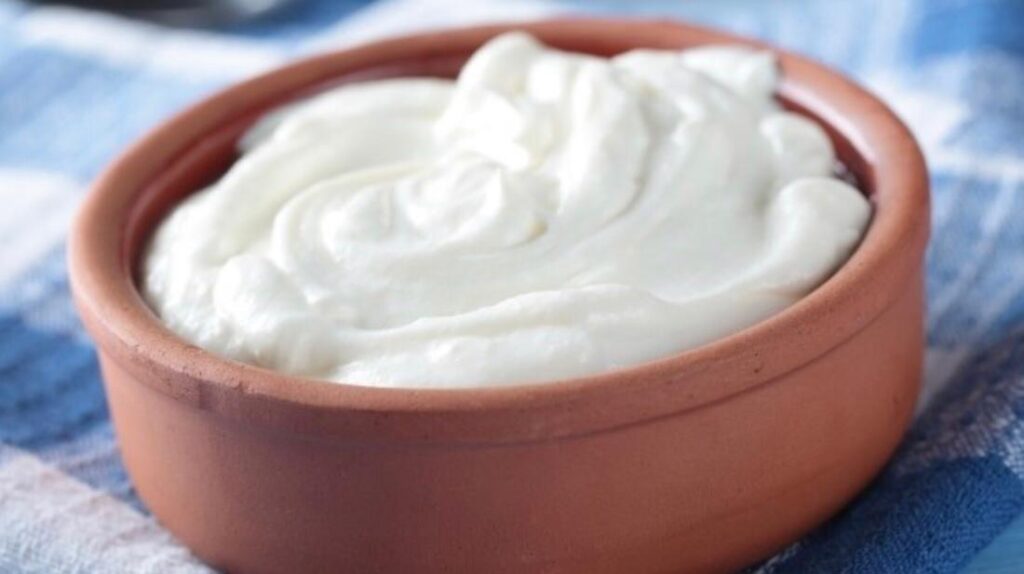
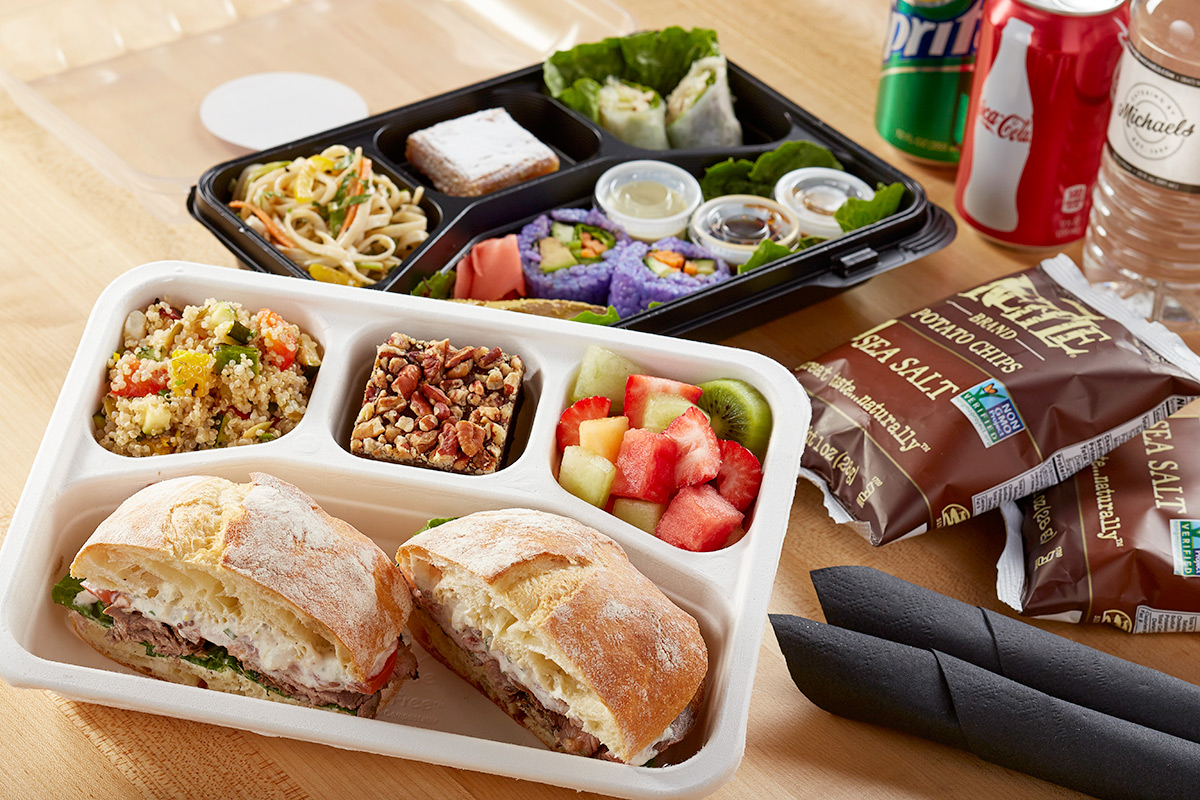

More Stories
eggplant involtini – smitten kitchen
Thai Basil Chicken · i am a food blog
Green Goddess Salad – The Cookie Rookie®